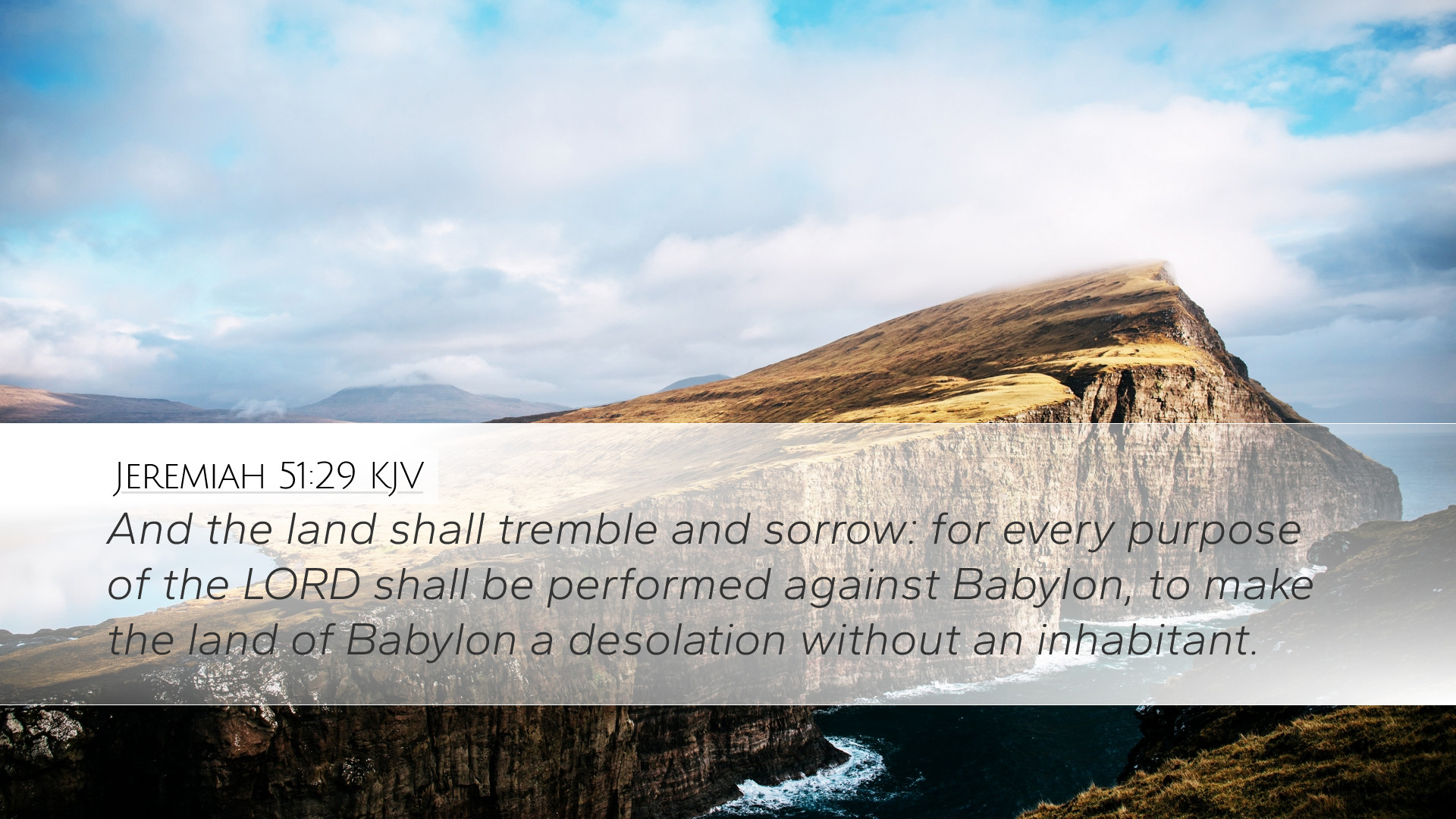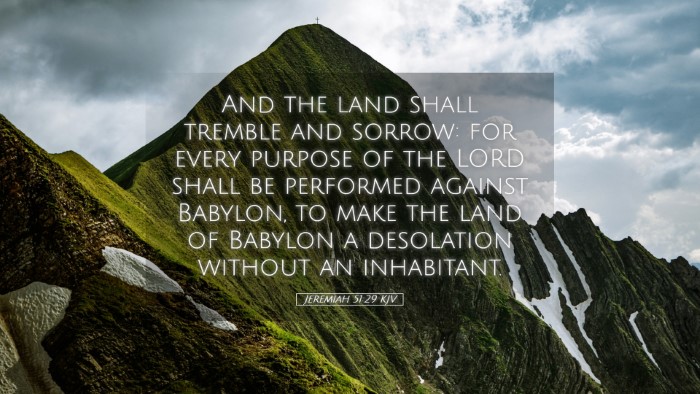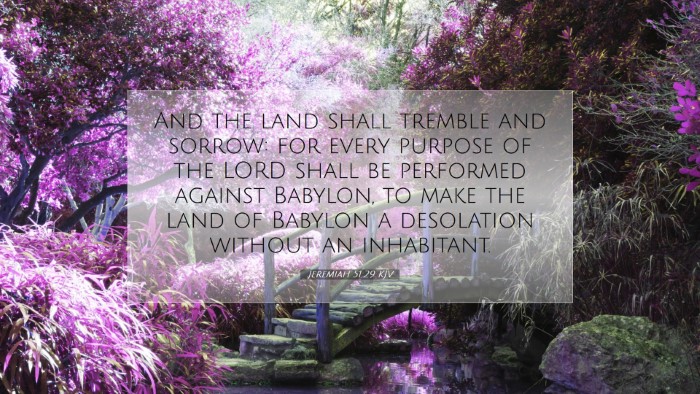Commentary on Jeremiah 51:29
Bible Verse: “And the land shall tremble and sorrow: for every purpose of the Lord shall be performed against Babylon, to make the land of Babylon a desolation without an inhabitant.” (Jeremiah 51:29 - KJV)
Introduction
Jeremiah 51:29 serves as a pivotal verse in the prophetic literature of Jeremiah, challenging both believers and scholars to reflect deeply on God's sovereignty and judgment. This verse encapsulates the essence of God's divine plan against Babylon, a theme prevalent throughout the prophetic writings, highlighting issues of sin, judgment, and ultimate restoration. The insights from various public domain commentaries bring forth the theological and historical significance of this verse.
Theological Insights
- Divine Sovereignty: The phrase "for every purpose of the Lord shall be performed against Babylon" emphasizes the sovereignty of God in orchestrating the affairs of nations. Adam Clarke notes that God's will is inexorable and predetermined, asserting that no resistance can thwart His designs.
- Judgment Against Sin: Jeremiah's prophecy against Babylon depicts God's judgment upon a nation characterized by immorality and oppression. Matthew Henry comments that Babylon's eventual desolation is a direct consequence of its sinful actions, serving as a warning to all who oppose God's covenant.
- The Consequence of Idolatry: Albert Barnes highlights Babylon’s role as a symbol of idolatry and rebellion against God. The ultimate destruction of Babylon signifies the futility of worshiping false gods and the consequences of turning away from the true God.
Historical Context
The context of Jeremiah 51:29 is rooted in the history of Israel and its relationship with Babylon. At the time of this prophecy, Babylon was a dominant empire known for its strength and idolatry. Jeremiah, often referred to as the weeping prophet, delivers this message during a time of impending doom for Jerusalem, emphasizing the certainty of Babylon's eventual downfall.
Henry reflects on the historical events leading to Babylon's demise, noting how God utilized various empires as instruments of judgment against Israel, ultimately returning to fulfill His promises of restoration.
Literary Analysis
Jeremiah’s use of vivid imagery in this verse—“the land shall tremble and sorrow”—illustrates the cosmic disruption that accompanies divine judgment. The personification of the land responding to God’s wrath reflects a broader biblical motif where creation itself reacts to divine actions (see Romans 8:22).
As Clarke notes, this personification is not merely rhetorical; it serves to portray the severity of God's judgment and foreshadows the 'decay' that follows the collapse of earthly powers. As the ancient near-eastern thought illustrates, lands were perceived as entities with emotional responses, providing a rich depth to understanding God’s judgment.
Practical Applications
- Awareness of Divine Judgment: Pastors should emphasize the reality of God’s judgment on sin. Just as Babylon faced the consequences of its iniquities, contemporary societies must recognize the necessity of turning to God in repentance.
- Hope in God’s Sovereignty: This verse reassures believers of God’s ultimate control over human affairs. In times of uncertainty, it is crucial for the faithful to trust in God's overarching plan, as noted by Barnes, who assures that nothing escapes God's awareness.
- Call to Righteous Living: The desolation of Babylon serves as a call to uphold justice and righteousness. The church is challenged to be a beacon of hope and truth in today’s world, advocating for a return to godliness.
Conclusion
Jeremiah 51:29 presents profound theological truths about God's sovereignty, the reality of divine judgment, and the significance of moral integrity in the face of societal corruption. The insights drawn from the commentaries of Henry, Barnes, and Clarke offer a multilayered understanding of this verse, serving both as a warning and as a source of hope. For pastors, students, theologians, and Bible scholars, this passage is a reminder of the tension between God's justice and mercy, calling each to a deeper commitment to living according to His will.


